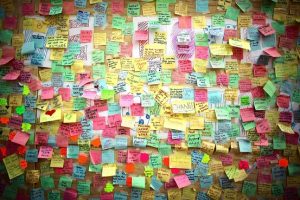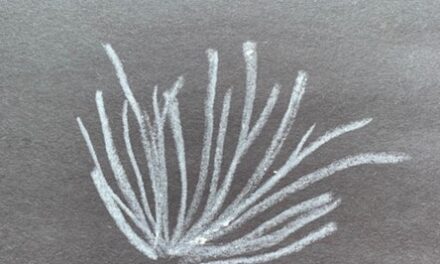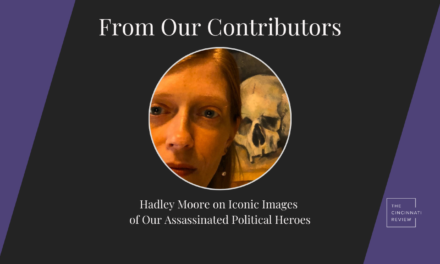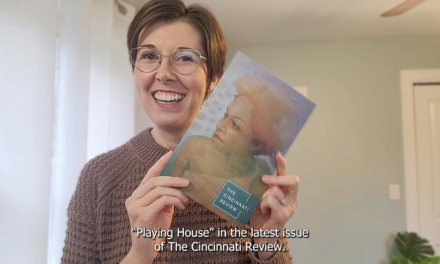Our conscious minds notice only the tiniest fraction of all the stimuli in our environment: car horns, baking bread, ants on the sidewalk, a gust of wind, a buzzing phone. Sometimes, it seems easier to put in our headphones, tune everything out, and get through the day. Thankfully, our issue 13.1 contributors are on high alert, notici ng the little, the obscure, and the strange, bringing us the news of a world that is challenging and beautiful. Tabloids we might not notice become critiques of our own voyeurism, a museum we may never visit becomes a site of religious power, and the chilling fog reminds us that unseen does not mean lost. Check out what our contributors have to say about finding inspiration from the world around them.
ng the little, the obscure, and the strange, bringing us the news of a world that is challenging and beautiful. Tabloids we might not notice become critiques of our own voyeurism, a museum we may never visit becomes a site of religious power, and the chilling fog reminds us that unseen does not mean lost. Check out what our contributors have to say about finding inspiration from the world around them.
Allen Forrest: The idea for my comic came to me as I was waiting in line at the grocery store and looking at all those tabloids at the checkout. The psychology of their subjects and headlines made me think “what if” they spelled it out a little more. I am a big fan of the late Mae Brussell and all her amazing research work—so I incorporated some of her views into this piece.
John A. Nieves: Both “Brume” and “While the Radio Was On” are poems in a series on everyday disappearances. I am interested in the way things slip from the world and the different ways people deal with that slippage. “Brume” engages the way fog erases by filling space, by obscuring. I was interested in disappearance by addition instead of subtraction, so even the final note of the poem is one of addition. “While the Radio Was On” engages a particular suspected suicide, though even the finality of that tragic occurrence (and the body disappearing below) gets called into question as the surety about the motive of the act is troubled and doubt dissolves into a narrative we all know perhaps too well. Even the doubt, then, disappears in its own way.
Alison Pelegrin: “The Doomsday Prepper’s Villanelle” was inspired by binge watching (as a comedy) the series Doomsday Preppers. I live in the deep South, where this kind of preparedness has been hard core among citizens since (and probably long before) Y2K. “Hot Sauce Shrine” came to me from all over. There is a found objects/junk museum near my house that has a hot sauce house. A lot of the imagery in that poem I have seen on a country road I drive sometimes to and from work. The last line came from a video featuring the poet Campbell McGrath—I have no idea of the source (I think this was pinned to the wall behind him), but it has always reminded me of Bede’s sparrow.






![Katie Berta on Her Poem “[To be a child again.]”](https://www.cincinnatireview.com/wp-content/uploads/2022/12/Berta-house-440x264.jpg)




